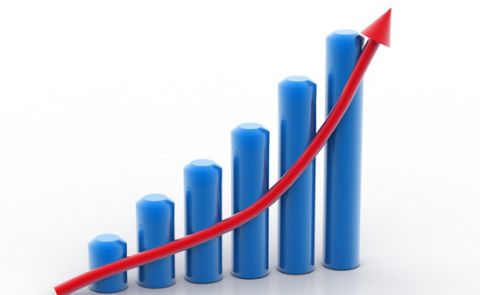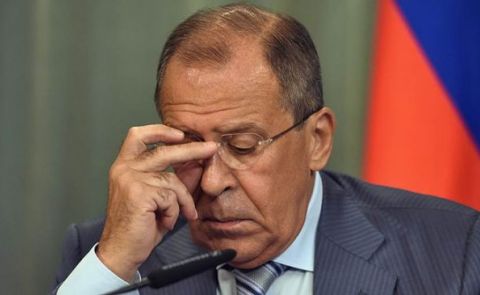
Despite Crises, the Georgian Dream is Likely to Survive
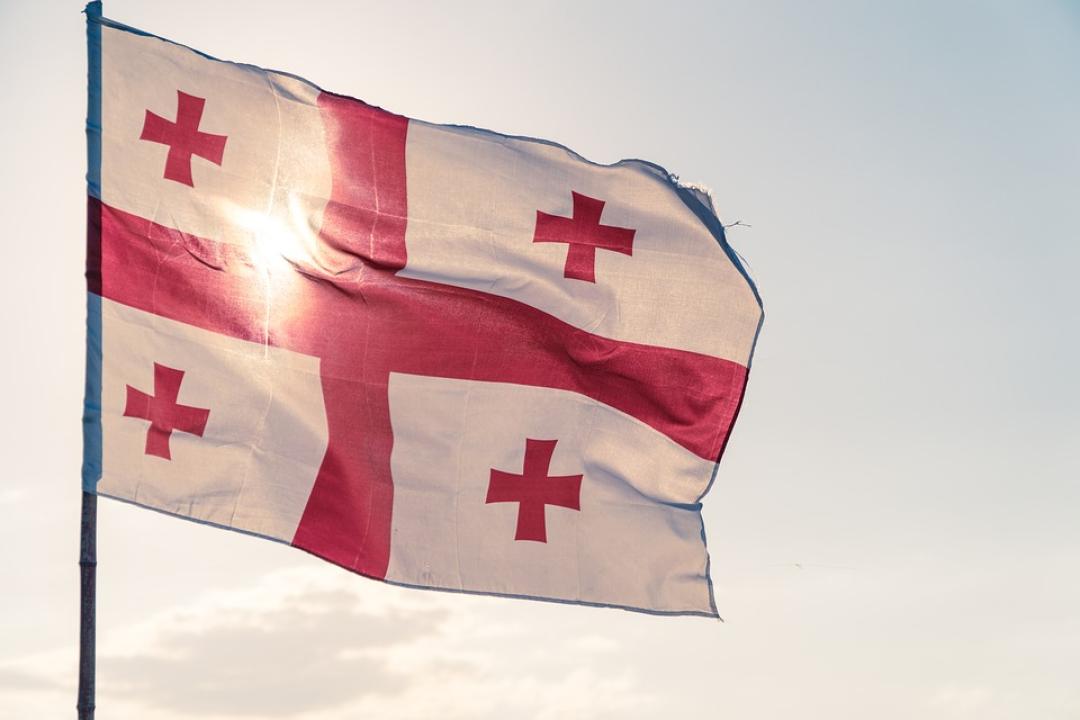
On November 14th the Georgian Parliament failed to enact a constitutional amendment, demanded since summer this year, on the transition to a proportional electoral system. The failure prompted protests, that are still continuing, across the country. However, despite increasing pressure on the government inside the country and from western governments, the ruling party (Georgian Dream (GD)) is unlikely to collapse. In fact, support from the business elites as well as the animosity of a large portion of population towards the major opposition forces are likely to make the ruling party a top competitor in 2020 elections.
The failure to pass the ammendment caused widespread protest across the country. Though the number of protesters differs from place to place and fluctuates from time to time, there is clear increase in “protest mood” across the youngsters and especially in Tbilisi (a city of almost 1.2 million out of Georgia’s 3.7 million population).
Moreover, as a further complication for the ruling party there has been an increasing understanding among the opposition parties on the need to act united. Increasingly, political leaders tend to believe that their weight will be limited if they run separately. Indeed, on November 14 a program called “All, minus Ivanishvili” was announced where all opposition parties unite their forces to demand snap elections and various changes to the existing government policies.
This development is important to watch. The Rose Revolution of 2003 took place as a result of a unified opposition front. The same happened in 2012 when all opposition forces were united within the Georgian Dream party. In both cases, the then ruling governments changed.
The Georgian opposition parties also have an additional reason to work as a united front. As previous elections showed that small parties rarely manage to cross the electoral barrier. Inability to cross the 3 percent electoral barrier set for 2020 thus could serve as a merging point for many political forces.
Thus, there is a growing consensus among the opposition parties that it will be impossible to defeat Georgia’s wealthiest person, Bidzina Ivanishvili's large financial and political influence if acting separately.
As Georgia enters the 2020 pre-election political debates that are traditionally absorbed by internal situation in the country: the need to implement various economic, education and social reforms. Foreign policy so far has always been only a sideshow.
However, this time foreign policy issues will also feature high on the parties' agenda. There have been constant incriminations between the ruling party and opposition forces on whether the country conducts decent foreign policy. For example, the faltering Anaklia port project will be used by the opposition forces to underline the government’s alleged efforts to undermine the project.
As the time of the crucial parliamentary elections nears, yet another important development will be taking place, which potentially could complicate the government’s manoeuvrability: the creation of new political entities (parties and movements). Indeed, new actors have already appeared on the scene. Mamuka Khazaradze, former banker and a lead proponent of the Anaklia port project established a movement – Lelo – which will be transformed into a political party this December. Though viewed sceptically by many because of his financial background, Khazaradze’s upcoming party is likely to gain much larger percentage than many other non-parliamentary opposition forces.
Beyond these important internal developments which increase problems for the ruling party, there is also an increasing external pressure from Georgia’s western partners. For example, following the failure to enact the amendment, US congressman Adam Kinzinger states that “the failure will destroy the progress Georgia has made to reach complete independence and separation from an aggressive, encroaching neighbour in Russia”. More recently, on December 13, the US congressmen commented on the failure to enact the constitutional amendment “that is why we were shocked to hear about the collapse of promised reforms in the Georgia Parliament to move to a proportional electoral system”.
Similar statements have been continuously made by the US Embassy to Georgia, EU ambassador to Georgia and many European partners of the country.
Despite Problems, GD will remain a real competitor
Though there are multiple developments which put serious pressure on the ruling party, it is unlikely we are going to see a collapse of the government. The ruling party still enjoys popularity among various elite groups such as business community, education sphere and most importantly security services.
Moreover, the growing Georgian middle class is also disinterested in having an abrupt end to the current government. Pretty large disenchantment exists among the populace with the opposition parties which are mostly dominated by the UNM and the European Georgia. Both are associated with the former Georgian president Mikheil Saakashvili's rule, which is famous for swift and positive reforms, but also for widespread political repression of opponents and human rights violations. This quite naturally limits the support the opposition parties among major support groups.
There is also a counter opinion that the electoral change by 2020 could have brought a more chaotic parliament with numerous parties and constant squabbles and protests in central Tbilisi.
Moreover, the slowly merging opposition forces do not have one distinct personality which will serve as figurehead during the protests. Indeed, 2003 and 2012 Saakashvili and Ivanishvili respectively, served as such leaders to bring about government changes.
There is also an external dimension too. Though Georgia’s western partners are indeed putting pressure on the ruling party, they are also sceptical about the opposition forces as none of them enjoy the necessary popularity to peacefully rule the country. Indeed, as various recent polls show it is still the GD which gains most of votes.
Thus, even with the troublesome internal tendencies for the ruling party, the GD will likely remain a significant competitor in the 2020 parliamentary elections because of deep unpopularity of the opposition parties, unavailability of a popular opposition figure as well as scepticism from abroad levelled at the opposition forces.
See Also

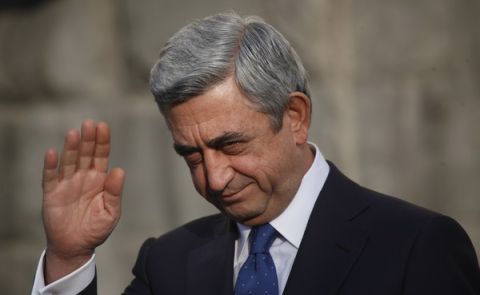
Serzh Sargsyan Rejects Charges, Backs Impeachment, and Warns of Secret Deals
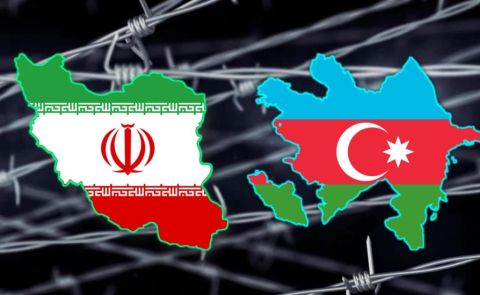
Azerbaijan Confirms Execution of Terrorist Behind Embassy Attack in Iran
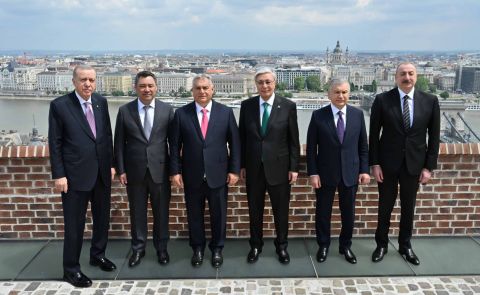
Turkic Leaders Adopt Budapest Declaration, Emphasizing Peace, Trade, and Digital Connectivity
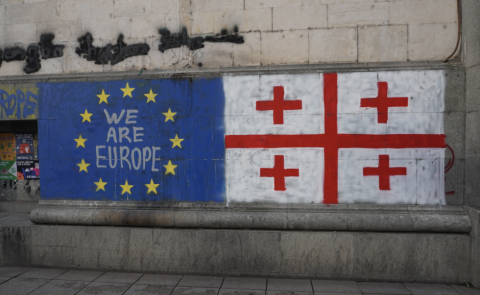
International Officials Criticize Georgian Dream Amid Democratic Concerns
